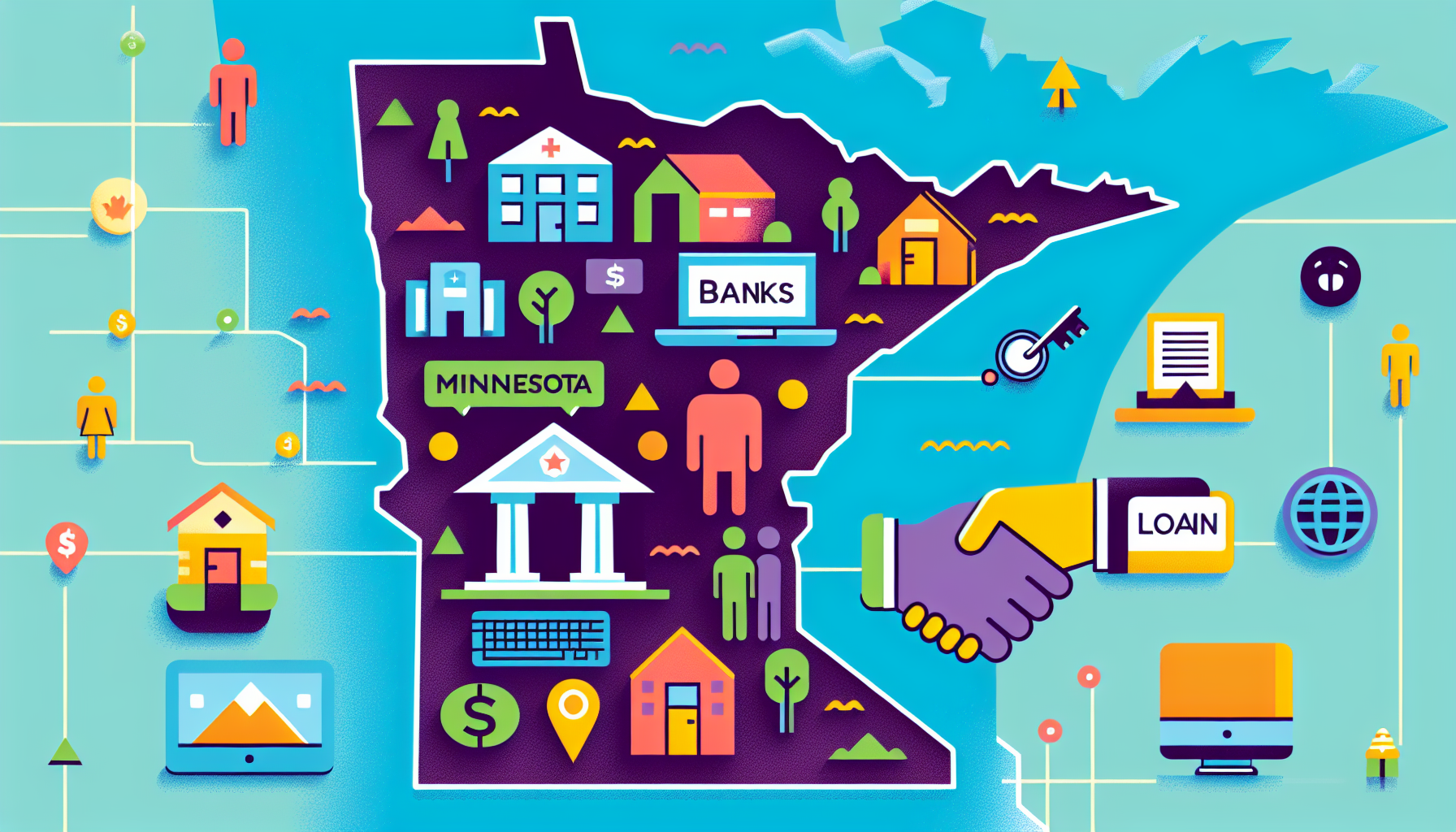
Get The Funds You Need
Get Your Funds in No Time with Primo Personal Loans
We’ll work with you to find the perfect loan solution to fit your needs.
Fast Process
Online Loans
Available 24/7
Increased Flexibility
All credit levels can apply
Various loan amounts
01

Fill in the online inquiry form
02

Get connected with a third-party lender
03

Cash in hand or in your bank account
Searching for the best personal loans Minnesota? You’re not alone. With myriad loan options and lenders available, it can be challenging to find a loan that suits your unique financial needs. But don’t worry, whether you’re considering a bank, credit union, or online lender, we’re here to guide you through the process.

In Minnesota, acquiring Minnesota personal loans is possible from a variety of lenders like banks, credit unions, and online loan providers. Each lender type comes with its own set of benefits and drawbacks. When comparing lenders, one should factor in aspects like interest rates, fees, and the quality of customer service.
Banks are traditional lenders that offer the best personal loans, including personal installment loans, to individuals with strong credit history through a loan account. However, they may have stricter requirements and higher interest rates.
Take SoFi, a well-known bank in Minnesota, as an example. It necessitates a gross income over $50,000 and a minimum credit score of 680 for personal loan approval.
If you don't meet these criteria, you can fill in the online form and we'll help you look for a suitable lender.
Credit unions, on the other hand, are member-owned financial establishments that offer loans to a specific demographic, often delineated by geographical proximity or occupation. They typically provide lower interest rates and flexible terms.

Online lenders facilitate a smooth application process, enabling borrowers to apply, pre-qualify, and secure funding without the need for a physical visit. They offer loan amounts up to $50,000 with a minimum credit limit of 300.
The two primary categories of personal loans are secured and unsecured. Secured loans require collateral, such as a car or property, and offer lower interest rates and higher borrowing limits. A personal installment loan, on the other hand, is a type of unsecured loan that does not require collateral.
Conversely, unsecured loans do not demand collateral and are usually available based on creditworthiness and income.
Secured loans use collateral such as a car or property to back up the loan, making them a popular loans subject. This reduces the risk for the lender, allowing them to offer lower interest rates and higher borrowing limits. A loan agreement is essential in outlining the terms and conditions of these secured loans.
Yet, if you default on a secured loan, it could significantly damage your credit score and result in the loss of your collateral.
Unsecured loans, on the other hand, do not require collateral, making them less risky for borrowers. These loans are typically accessible based on creditworthiness and income, but they may involve higher interest rates and more stringent qualifications due to the increased risk for the lender.
Various factors, such as your credit score and the loan amount, influence the interest rates and terms of personal loans. A higher credit score can result in lower interest rates, higher loan amounts, and more flexible repayment terms.
Credit scores play a significant role in determining loan terms and interest rates. Generally, a higher credit score leads to lower interest rates and more favorable loan terms.
Conversely, a lower credit score could result in higher interest rates and less advantageous loan terms due to the heightened risk posed to lenders.
Interest rates and monthly payments can also be affected by the loan amount and duration. Larger loan amounts often result in lower interest rates, while longer loan terms can lead to lower monthly payments but a higher overall interest cost.

Debt consolidation is a strategy that can help simplify your financial management. Consolidating multiple debts into a single loan with one monthly payment could potentially reduce your overall interest rate and expedite your debt repayment.
Debt consolidation with personal loans offers several advantages. It streamlines monthly payments by consolidating multiple debts into one loan, potentially decreasing the overall monthly payment amount. Consolidation loans can also lower your overall interest rate, saving you money in the long run.
When contemplating debt consolidation using personal loans, you must consider the total cost of the loan, encompassing interest rates and any related fees. A seemingly low-interest rate may be counterbalanced by high fees, so it’s crucial to assess both elements to understand the true cost of borrowing.

A personal loan can provide the necessary financing if you’re planning a home improvement project. With competitive interest rates and flexible repayment options, personal loans can be an effective way to finance home improvements.
Personal loans for home improvement offer several advantages. They provide a quick and convenient way to finance your project, without the need for home equity or closing costs. They’re also typically faster to obtain than home equity loans, making them a great option if you need funds quickly.
While personal loans serve as a good option for financing home improvements, other alternatives should also be taken into account. These include home equity loans, home equity lines of credit, and government-backed loans, each with their own set of advantages and considerations.
More than just comparing interest rates is involved when selecting the right personal loan in Minnesota. You should also consider factors such as repayment terms, fees, and flexibility when evaluating personal loan offers from different lenders.
As you compare lenders, focus on more than just the interest rates they provide; also consider other facets of their loan packages. This includes:
It’s also important to consider the lender’s reputation and customer service.
In evaluating loan terms, be sure to consider the total cost of the loan, not merely the monthly payment. This includes the interest rate, any associated fees, and the term of the loan.
A longer loan term might result in lower monthly payments, but you’ll end up paying more in interest over the life of the loan.
After selecting a lender and a loan that fits your requirements, you can begin the application process. This typically involves filling out an application form and providing certain documents to verify your identity and financial situation.
Numerous lenders have a pre-approval process that allows you to gauge the loan terms and interest rates you might qualify for, all without impacting your credit score. This can help you compare loan offers and make an informed decision.
When applying for a personal loan, you’ll typically need to provide documents such as proof of identity, proof of income, and bank statements. Providing accurate and complete information can help ensure a smooth application process and increase your chances of approval.
In conclusion, personal loans can be a powerful tool to meet your financial needs, whether you’re consolidating debt, financing home improvements, or covering unexpected expenses. By understanding the different types of personal loans, comparing lenders, and carefully evaluating loan terms, you can find the best personal loan that suits your needs in Minnesota.
Most lenders require a minimum credit score of 610 to 640 to qualify for a personal loan, though some may offer loans to borrowers with lower scores. To get the best interest rates and other terms, however, you'll need a FICO®® Score of 670 or higher.
Secured personal loans require collateral as security, while unsecured loans do not.
Yes, you can use a personal loan for debt consolidation to reduce your interest rate and pay off your debt faster.
To apply for a personal loan, you will need to provide an application form, proof of identity, proof of income, and bank statements.